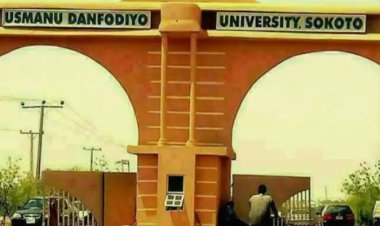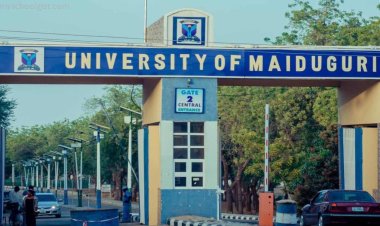400 Level without 400k na primary 4 - Victor Boniface Informs Nigerian 400L Students
400level without 400k na primary 4 - Victor Boniface Informs Nigerian 400L Students, Nigerian footballer Victor Boniface has taken to social media to offer advice to university students in their 400-level, suggesting that life after graduation can be far more challenging than many realize.

400 level without 400k na primary 4 - Victor Boniface Informs Nigerian 400L Students, Nigerian footballer Victor Boniface has taken to social media to offer advice to university students in their 400-level, suggesting that life after graduation can be far more challenging than many realize.
In an unexpected and thought-provoking statement, Nigerian footballer Victor Boniface has taken to social media to offer advice to university students in their 400-level, suggesting that life after graduation can be far more challenging than many realize. His remark, "400level without 400k na primary 4," has sparked intense conversations and debates among Nigerian students, particularly those in their final year.
Boniface, known for his career in European football, delivered the message as part of his ongoing efforts to inspire Nigerian youth to take their future seriously. Through his platform, he conveyed that achieving academic success is not always enough to guarantee financial security in today’s competitive world.
The Meaning Behind the Statement made by Nigerian footballer Victor Boniface

Victor Boniface's comment implies that students should not only focus on completing their academic programs but also work on acquiring the necessary financial resources, skills, and networks to thrive in the real world. According to Boniface, having 400k (400,000 Naira) or more in savings before graduation is a reasonable target, as it could serve as a cushion in the face of unforeseen challenges and the often-tough Nigerian job market. His statement humorously juxtaposes the idea of finishing school without financial readiness to going back to the basics—suggesting that students would be ill-prepared for life’s realities.
Student Reactions and Debate
Since Boniface’s remark went viral, Nigerian students, particularly those in their final years, have had mixed reactions. Some have praised the footballer for his honesty and valuable perspective, pointing out that many students are unprepared for the financial challenges they face after graduation. Others, however, have criticized the idea of putting a price on academic success, questioning whether it was fair to impose such financial expectations on students who are already grappling with tuition fees and other academic pressures.
“I believe Boniface’s words are a wake-up call for us,” said Chiamaka, a 400-level student at the University of Lagos. “Yes, we’ve been focused on grades, but it’s true that when we graduate, we need more than just good results to survive in this country.”
On the other hand, some students feel that such advice could inadvertently add unnecessary stress to those already struggling to make ends meet. “Not everyone has the privilege to save that kind of money, especially with how expensive education and living costs are,” expressed Jide, a final-year student at Obafemi Awolowo University.
A Wake-Up Call for Educational and Economic Reform
Boniface’s statement also highlights the broader issue of unemployment and underemployment among young Nigerians. According to the National Bureau of Statistics, youth unemployment in Nigeria continues to rise, with graduates facing difficulty securing stable jobs even with impressive academic qualifications.
Many see the athlete’s message as an urgent reminder for students to diversify their skills, engage in internships, or even take on entrepreneurial ventures while in school. Financial literacy and business skills, they argue, should be integrated into the academic curriculum to better prepare students for life after graduation.
Victor Boniface’s bold statement has ignited a crucial conversation about financial readiness and the importance of preparing for life after university. His call for Nigerian 400L students to be financially savvy and resourceful, even before they receive their degrees, sheds light on the larger issue of youth unemployment and financial instability in the country.
As more students reflect on these words, many are now considering how to balance their academic pursuits with practical steps toward financial independence and career success. Whether or not they agree with the specific financial figure, Boniface’s message underscores the reality that academic excellence alone may no longer be enough to navigate the challenges of modern Nigerian life.





